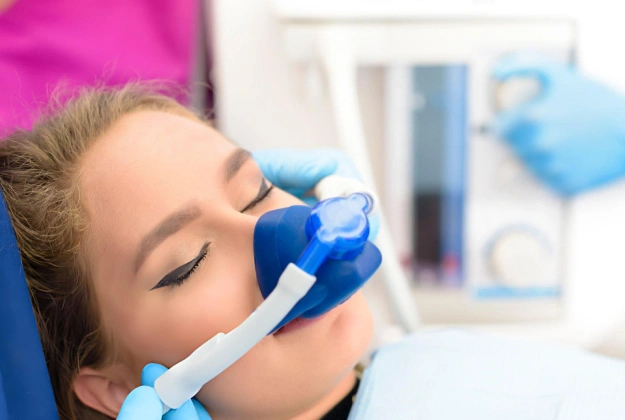
What is Sedation Dentistry?
What Are the Different Types of Sedation?
Nitrous Oxide (Laughing Gas): Nitrous oxide is not a true sedative, but it helps patients relax and reduces anxiety. It may make patients feel as though the procedure is passing quickly by diminishing awareness of sights, sounds, and sensations. The main advantage of nitrous oxide is that it wears off quickly once you breathe oxygen for about five minutes, leaving no lingering effects. There's no need for someone to drive you home after the appointment.
Oral Sedation: Oral sedation involves taking a sedative pill before your appointment, which often leads to deep relaxation or sleep. Patients may not remember much of the procedure afterward. Since oral sedation carries higher risks than nitrous oxide, it requires additional training and certification for the dentist. Patients who use oral sedation must arrange for a responsible adult to drive them to and from the appointment due to lingering effects of the sedative.
Who Should Consider Sedation Dentistry?
Sedation dentistry is ideal for patients who experience fear or anxiety about dental procedures, preventing them from seeking necessary care. It’s also useful for those requiring extensive dental work who would prefer to complete everything in a single, longer appointment. Additionally, patients with physical or mental challenges that make it hard to remain still or calm in the dentist’s chair may find sedation beneficial.
However, sedation dentistry isn’t suitable for everyone. Medical conditions, current medications, and other factors must be considered before determining if sedation is safe and appropriate for a patient.
Precautions Regarding Sedation Dentistry
Sedation involves the use of prescription medications that can affect your body, especially your breathing. That's why it's important to share your complete medical history with your dentist. Some medications you’re taking may interact with sedatives, and conditions such as lung problems could affect how well nitrous oxide works. If you have a tolerance to medications like opioids or Valium, sedation might have a different effect on you.
To keep you safe, make sure to inform your dentist about all medical conditions, any prescription medications, over-the-counter drugs, or even recreational substances you’re using. This helps ensure the sedation process goes smoothly and safely.